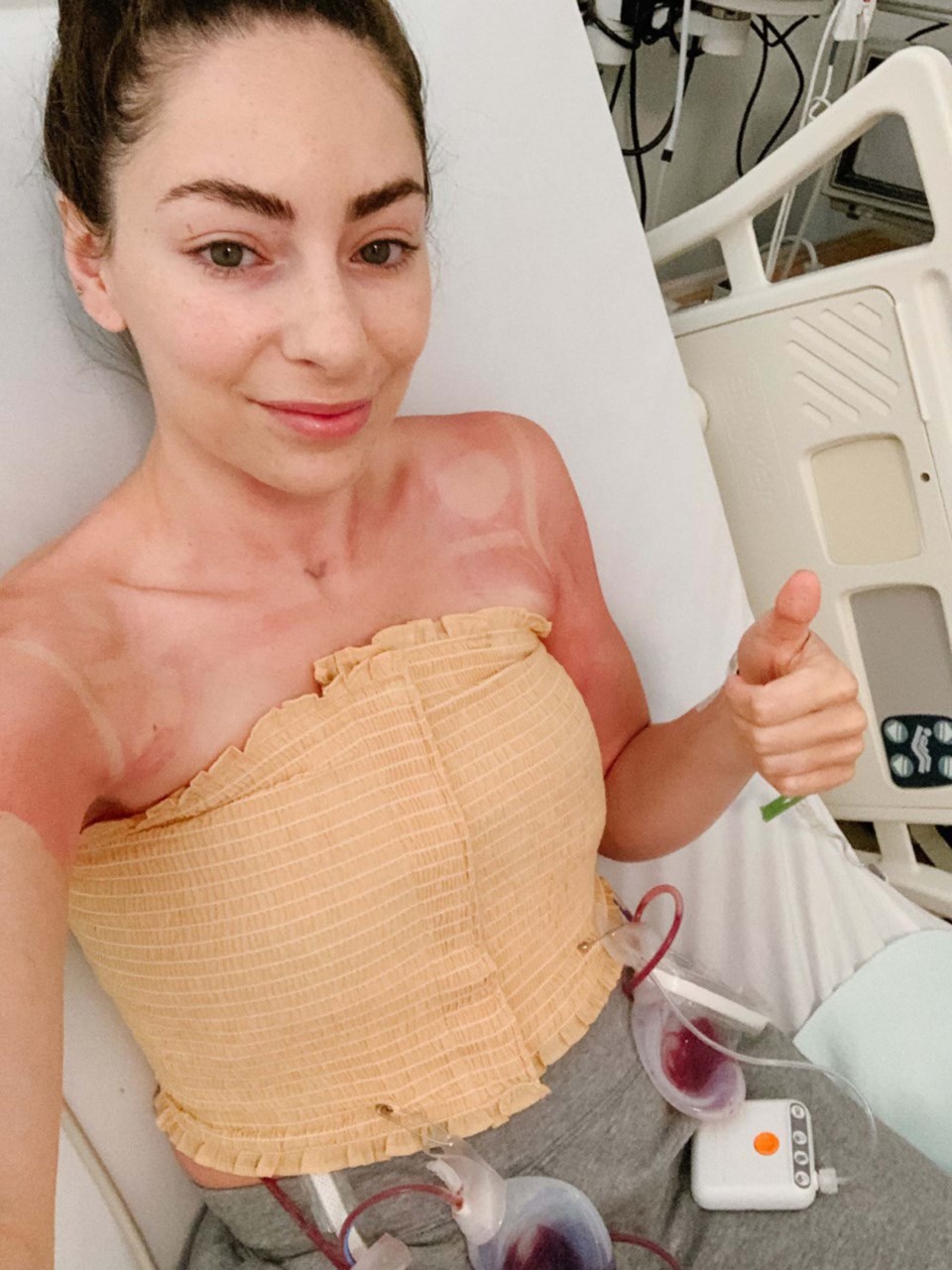RISK FACTORS FOR BREAST CANCER
- being aged 50 or older;
- dense breast tissue;
- having a mother or sister with breast cancer; especially before the age of 50;
- not having children or being more then 30 years old when a first child is born;
- starting menstruation before 12 years of age;
- late menopause
Source: Breast Cancer Society of Canada
ST. ALBERT, ALBERTA – Samantha Montgomery likely won’t ever forget the moment she got the call back from the genetics clinic about the results from her breast cancer gene (BRCA1) test.
“I was sitting on the floor in the dining room and the kids were running — one was running, the other was crawling at the time — towards me to catch them.
“The phone rang, and I thought, ‘Well this is it,” she said.
“My counselor said, ‘I am so sorry, Sam, but I have bad news.’ My heart sank, and I said, ‘Well, I know what that means.’”
The St. Albert woman knew what that meant because cancer is no stranger in her family. Her mom had ovarian cancer and “too many aunts and cousins” had other cancers, many of whom also tested positive for the breast cancer gene.
As upsetting as the news of her own positive test was, she admitted she wasn’t shocked. Because of her family history, she was 20 when she began getting tested regularly at the women’s clinic, which meant annual mammograms, breast exams, ultrasounds, and MRIs.
She didn’t get the breast cancer gene test right away because she wanted to have children first.
“Being BRCA1 positive means I am at a much higher risk of developing breast or ovarian cancer compared to someone who doesn’t have this mutation,” said Montgomery.
“I don’t know why, exactly, but part of me thought that if I tested positive it would hinder my decision when choosing to have kids because this gene is, of course, hereditary.”
After her second son was born, she decided it was time. All she could think about was how to be the healthiest mother for her children. She had the test, and she got the call back with the results that she was BRCA1 positive.
She knew immediately her course of action would be to get a total hysterectomy and a double mastectomy to greatly reduce the chance of getting ovarian or breast cancer.
“To be honest, I would do anything to potentially give me extra time with my family.”
Her hysterectomy was done in October 2020. She was more concerned about her ovaries because ovarian cancer, she said, is called "the silent killer." By the time you realize you have it, it has most likely spread to other parts of your body.
She reflected on the outcome of this surgery, which put her into menopause at the age of 31.
“Let me just say it’s not a great feeling. The night sweats, constant hot flashes, mood swings, and just overall not feeling like myself was all incredibly challenging, especially while recovering from surgery. Luckily, a few weeks following my surgery, I was able to get started on my hormone replacement therapy.”
Her HRT is a clear patch she wears every day and changes twice a week. With it, she feels more like she did pre-menopause, she said.
With that taken care of, she then had her double mastectomy last summer. Technically speaking, she clarified, it was a bilateral, prophylactic, nipple-sparing double mastectomy with immediate reconstruction.
“Try saying that three times. It’s a mouthful, and in short, it’s basically where the breasts, and the breast tissue is removed but the nipples are left in place.”
The surgery was also considered a preventative measure, greatly reducing her risk of getting breast cancer almost to a certainty. Her risk of developing ovarian cancer is also now under five per cent.
The whole experience has left her with an overwhelming love for life and for living healthy. Her Instagram page is filled with her culinary adventures into making delicious, healthy foods and drinks. She’s happy and has a supportive husband and two energetic kids.
It has also left her with a ton of compassion for others who have gone through cancer.
“Every woman who goes through this journey will experience it differently, have a different outlook, and be affected emotionally in a different way,” she said, offering a note of solidarity to other survivors out there.
“Shout out to all the woman who have been affected by cancer in some way. Whether they have had it, or lost someone because of it, or are undergoing treatment, taking preventative measures, or who have lost the hard battle, I see you and I love you.”



